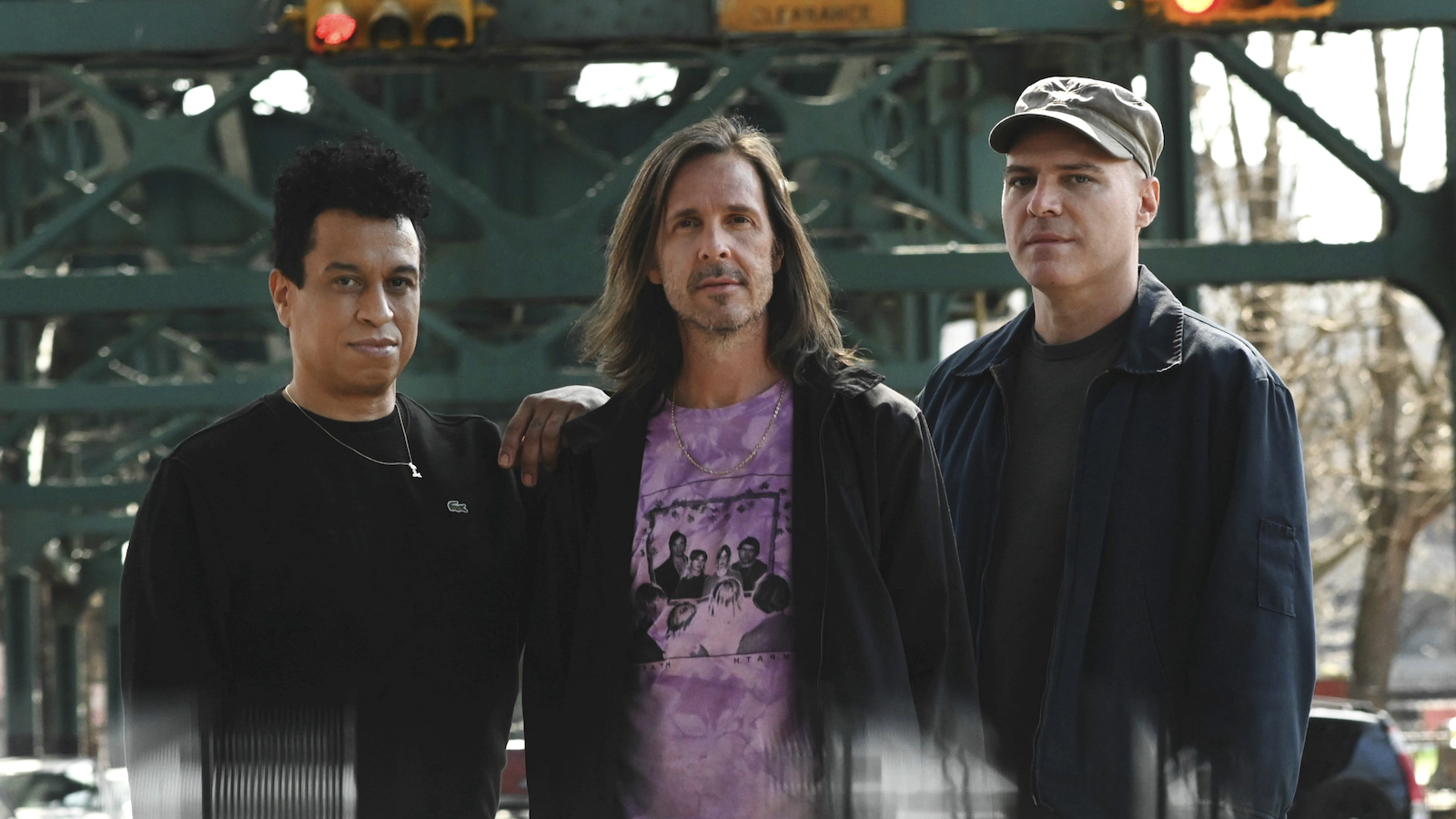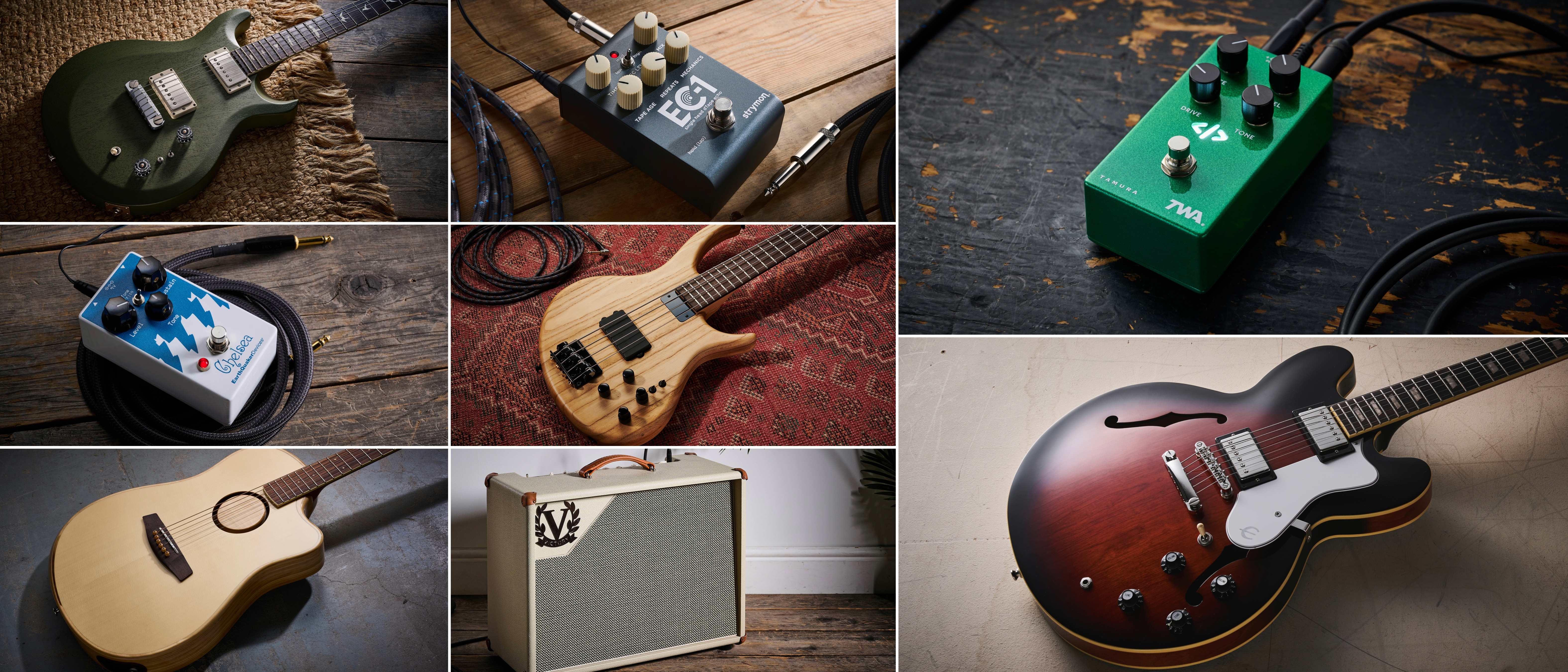Quicksand’s Walter Schreifels: “I felt more comfortable on this record than I did on ‘Interiors’, because I had gained more confidence from playing as a three-piece”
On their second album post-comeback, Quicksand embrace the modern age as icons of the ‘90s. But what does that mean?

When the post-hardcore icons Quicksand made their cataclysmic comeback in 2012, fans couldn’t have imagined how intense and eruptive their first album in over two decades would be. But 2017’s Interiors was the definitive distillation of everything that made Quicksand great in the ‘90s, and everything that made punk in 2010s great on its own accord. It was an unapologetically fan-serving record, with stacks of the meaty riffs and supercharged vocal runs that galvanised Walter Schreifels as a bonafide icon.
Now, they’ve returned once more with Distant Populations: an album that’s… Not scaled-back, by any means, but certainly more refined. It doesn’t feel like a modern-day reflection of what Quicksand were in the ‘90s, like Interiors did, but rather like a modern-day reflection of what Quicksand are right now. It’s heady and cerebral in ways that earlier material hinted at, but never fully embraced; it’s colourful and quirky, with an amplified focus on experimentation and diversity. Sure, there’s plenty of the chunky, crunchy punk grit that devotees will surely drool over – but there’s also plenty of more considered, more emotionally evocative moments.
We caught up with Schreifels to get the lowdown on what it means to be Quicksand in 2021, how the band went about encapsulating that, the gear that went into bringing it all to life, and when the frontman’s long-awaited second LP as a solo artist will finally make it to the surface.
What were some of the ways you wanted this record to push Quicksand into new territory?
We just didn’t feel as pressured to be nostalgic. Y’know, releasing a record after so many years, there’s that legacy you have to honour – because the people sort of own it in a way, y’know, people own the idea of Quicksand, because they’ve been keeping this idea alive. So how do you bring something new into that, and not just have it be like, “Oh, now you’re f***ing ruining it”? That’s a lot of pressure. But having broken through that with Interiors, we felt that with this record, we could go in a bit of a different direction. And we had the confidence to do that.
So as far as being contemporary, I think the fact that we’re making a new record is a great enough place to start… You know, we’re not trying really hard to be who we were on Slip, or anything like that – but that happens anyway, because we are the guys that made Slip, y’know? But we don’t have to do a pastiche of Slip, or some sort of imitation of who we were in 1993. I think that idea doesn’t really have legs, and no-one’s really interested in that. Because we’re just excited about the music that we’re making now, y’know what I mean? Maybe that’s a cliché, but it’s real for us.
Would you say this record took you very far out of your comfort zone?
I felt more comfortable on this record than I did on Interiors, because I had gained more confidence from playing as a three-piece. On Interiors, I felt more pressure to play solos and run similar plays to what a two-guitar band would do. And there’s some of that on this record, but much less. Also, because we’ve been playing as a three-piece for a while now, I’m way more plugged into the space that Sergio and Alan fill. So by doing less in some regards, it created more impact when I did come in with something else.
I just got better, y’know? Maybe it’s all about confidence – maybe it’s all subjective, and this is just my opinion, but I really felt like, “Yeah, I got this.” And as a guitar player, I think there’s a lot of things to like about the record. Depending on what your your point of interest is, you could totally just geek out on the bass or the drums, or the bass and the drums, or just the songs in general – y’know I like to think the vocals are catchy – but the guitar playing, yeah, I’m really proud of it. I think I did a good job. I’m pleased with it, anyway.
All the latest guitar news, interviews, lessons, reviews, deals and more, direct to your inbox!
So let’s vibe on the gear, what guitars went into Distant Populations?
I have a Jazzmaster that I really like, I played that a lot. I also have a Holiday Bobkat with gold-foil pickups in it, I played a bit of this Greco Les Paul that I liked – standard – and I also played this Fender Lead III quite a bit. That last one is a short-scale guitar with humbuckers in it. So I kind of bounced between those three. I would use the Lead III and the Greco for this more straightforward, modern kind of sound – even though they’re neither straightforward, nor modern guitars. But I would back it up a lot with the gold-foils on the Holiday, because I think that gives it a bit of a ghost-y quality.
It sounds like I’m listening to rock music on a standard Mesa Boogie, just straight down the middle, but it has a little twist on it – I think if you listen to it, you might you might pick up on how it’s just slightly off. I think the cool thing about gold-foil pickups is that they pick up ghosts, y’know? I think it has something that shoegaze music has where it’s very spiritual in sound – but at the same time, I also want to sound f***ing heavy, like heavy metal; I want it to chunk. So I kind of found that balance. A lot of the credit obviously goes to our producer, Will Yip, and our friend that mixed it, Josh Wilbur, who really knew what to do with it.
Being in the studio with Will, was there a good mix of analogue and digital going on?
He has like an old Neve console, so you’re always having that feeling that you’re making something classic-sounding. Y’know, it’s all going through the computer, but the vibe is that analogue-y kind of sound. But honestly, at this stage of the game, I don’t really cry about it one way or the other. I think we could do it all analogue and have it sound bad – I don’t think an analogue record is a good record by default, so I don’t really worry about it too much. It’s just like, if it sounds good, it sounds good.
But going through a Neve console is exciting, and especially if Will’s behind it at the desk. Because Will, for those who don’t know, is just very musical, and cool, and good at keeping forward movement. But at the same time, he’s just a bro. We were having fun. We were all just laughing and making cool music, and it was sort of like a “time flies when you’re having fun” situation. Y’know, we never get bogged down. So there was that analogue vibe, but there’s also some more electronic-y, digital moments on the record – and that’s cool. That’s the time we live in! I’m not a purist.
On that note, it’s been almost 12 years since you dropped An Open Letter To The Scene. When are you going to do another solo album?
I know, dude, I’ve really been dragging my feet on that. But I’ve been internalising some pressure to get on the f***ing case – I’ve been stacking up some tracks. And I appreciate you asking about that, because it’s just like a little bit more fuel for the fire, y’know? Like, “F***, dude, Australian Guitar asked me about it, I’ve got to get on that now!” Yeah, I will make another solo record. It’s going to happen, you heard it here first.

Ellie Robinson is an Australian writer, editor and dog enthusiast with a keen ear for pop-rock and a keen tongue for actual Pop Rocks. Her bylines include music rag staples like NME, BLUNT, Mixdown and, of course, Australian Guitar (where she also serves as Editor-at-Large), but also less expected fare like TV Soap and Snowboarding Australia. Her go-to guitar is a Fender Player Tele, which, controversially, she only picked up after she'd joined the team at Australian Guitar. Before then, Ellie was a keyboardist – thankfully, the AG crew helped her see the light…
